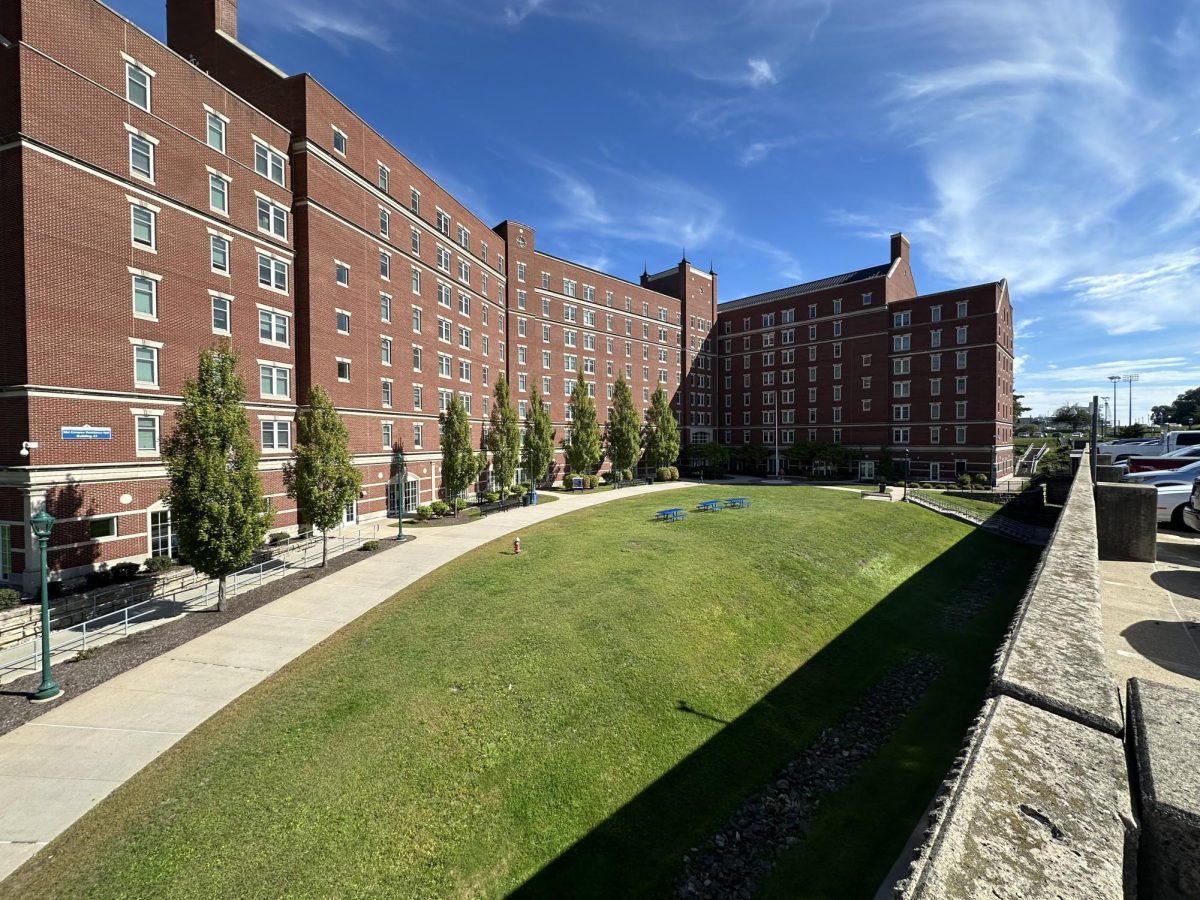By Matt Clyburn
Work groups are now in the process of holding regular meetings in an effort to carry out the university’s strategic plan initiative aimed at stimulating community engagement.
The groups are a component of the Central Connecticut 2020 movement that is comprised of leaders in business, government, nonprofits and education from New Britain, West Hartford, Farmington, Newington, Bristol, Berlin, Hartford and other towns across the region.
Leading the charge is a former state representative from New Haven, Bill Dyson, who holds the Governor William A. O’Neill Endowed Chair at CCSU, and other members of the Department of Public Policy and Social Research. In October a conference with more than 60 members of the community from a variety of fields was held. Kenneth Barone, a coordinator of the project and a colleague of Dyson’s, told The Recorder that the discussion was broad.
Dyson partnered with the community engagement office and the provost’s office to create three working groups for each of the three areas of focus: education, the economy and energy. The purpose of these working groups is to flush out what projects need to be worked on and where CCSU can add value.
“Community engagement plays an integral role in defining CCSU’s distinctive mission,” said a statement from the strategic planning committee. “CCSU’s faculty and students also contribute to community engagement through service learning, volunteerism and community-based scholarship.”
Leaders in the work groups are attempting to tackle significant and chronic issues. Some sample issues discussed include determining what the region will look like in ten years and where CCSU can add value to that vision as well as deciding what the university can do to help achieve the mission of CC2020. Among the larger issues are the concerns of education leaders.
“How does the university focus in on that problem and try to solve it so that we actually see results?” Barone asked. “Bill [Dyson] said we need to find a way to get everyone to work together.”
“We were amazed at the fact that the New Britain superintendent was there, the Farmington superintendent was there, and they had never met before,” Barone said. “Of course they have different missions and come from different settings, dealing with different types of students and different issues, but you’re right next to each other. You’re both going after the same state resources, yet you never thought that maybe you’d be better off doing that if you work together.”
In a meeting of the education work group earlier this month, each member listed the top two priorities that they thought the university should focus its attention on. The group’s next task is to narrow down the list of potential issues to a few and focus on concrete solutions.
Another theme that keeps coming up before the education work group is college readiness. Several community leaders suggest the university should be more readily involved in encouraging younger children in the region to attend college by expanding university influence in classrooms. For example, students from the school of education are in the schools regularly as they complete the internships and observations necessary to meet their graduation requirements.
Dyson hopes that the university will put more resources behind the development of courses that partner with community schools and create a curriculum that will get children in the community exposed to college students with more diverse career interests.
Leaders also hope to create a community advisory board to help advise CCSU President Jack Miller in the university’s community presence. Barone wants to find members of the community who are interested in working with the university and who might be interested in creating the advisory board in the future.
“The goal is to start forming long-term relationships with organizations and people that are more than just one-time affairs,” Barone said. “The goal we’re trying to promote is longevity in the projects that we’re doing and if we’re going to start something we have to be serious about it and stick with it.”
Barone believes the working groups will help move the initiative in the right direction thanks to increased ‘buy-in’ from the community.
“I think we’re going to see more collaboration now between cities and towns,” Barone said. “The university has this unique position because we can be a regional steward of sorts in terms of having the knowledge base and the voice to encourage collaboration to happen. We’re an incredible knowledge base in terms of our faculty and an incredible workforce in terms of our students. Community partners need to start looking towards us as a resource.”
Each working group will work independently on a separate schedule and the larger group will be encouraged to meet twice a year for continuity. Assuming community engagement remains a priority for the university, Barone believes this will become an important part of the region’s future.
“When you actually bring people together and they start talking to each other, you’d be amazed at the concrete ideas that start coming out of these conversations.”

